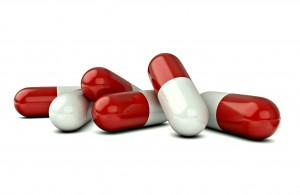Senator Dianne Feinstein (D-CA) has introduced legislation to combat antibiotic resistant superbugs that develop when farm animals are given non-theapeutic doses of the drugs. The Preventing Antibiotic Resistance Act of 2013 directs the FDA to prohibit the use of human antibiotics given to healthy animals if doing so jeopardizes human health. The measure is also sponsored by Senators Susan Collins (R-ME), Jack Reed (D-RI), Maria Cantwell (D-WA), Kirsten Gillibrand (D-NY) and Barbara Boxer (D-CA).
 The bill would require agriculture producers and drug companies to demonstrate that antibiotics are used to terat “clinically diagnosable diseases”, not just to make animals gain weight or compensate for poor growing conditions. Feinstein said in a statement, “antibiotics are the closest thing to a ‘silver bullet’ in human medicine given their ability to wipe out a wide variety of bacterial infections, but we are in danger of losing this weapon in the fight against infectious diseases.”
The bill would require agriculture producers and drug companies to demonstrate that antibiotics are used to terat “clinically diagnosable diseases”, not just to make animals gain weight or compensate for poor growing conditions. Feinstein said in a statement, “antibiotics are the closest thing to a ‘silver bullet’ in human medicine given their ability to wipe out a wide variety of bacterial infections, but we are in danger of losing this weapon in the fight against infectious diseases.”
Almost half of all meat sold in grocery stores is contaminated with antibiotic resistant pathogens, according to a study in the journal Clinical Infectious Diseases. And 25% of the meat is contaminated with pathogens that are resistant to at least three types of antibiotics.
The Act directs the FDA to prohibit non therapeutic use of antibiotics in food animals, such as for growth enhancement or as a general disease prevention aid. It applies the restrictions only to the limited number of antibiotics that are critical to human health. It also preserves the ability of farmers to use antibiotics to treat sick animals.
In the House, the Preservation of Antibiotics for Medical Treatment Act of 2013 (PAMTA) is sponsored by Congresswoman Louise Slaughter (D-NY), the only microbiologist in Congress. Rep. Slaughter has confirmed with the FDA that 3.3 million kilograms, which represent 80% of all antibacterial drugs used in the U.S., are being distributed for use on animals.




